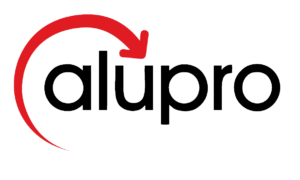
The Rt Hon Dr Thérèse Coffey MP
Secretary of State
Department for Environment, Food and Rural Affairs
Seacole Building
2 Marsham Street
London
SW1P 4DF
11th April 2023
Dear Secretary of State,
We are writing to you today on behalf of the value chain for aluminium packaging regarding the latest government response to the consultation for a Deposit Return Scheme (DRS) for England, Wales and Northern Ireland, released 20th January 2023. Alupro welcomed the publishing of this long-awaited document and we look forward to the release of the accompanying Impact Assessment.
By way of background, Alupro is a not-for-profit organisation with 30 years’ experience representing the UK’s aluminium packaging industry chain. We represent businesses who work to fulfil the industry’s obligation to meet, and exceed, recycling targets for aluminium packaging.
As an infinitely recyclable material, aluminium beverage container recycling rates hit a record-breaking 82% in 2021, the highest of any beverage container in the UK. Our members’ collective, voluntary efforts have achieved this over the last 30 years through industry-leading public engagement initiatives such as Every Can Counts and Metal Matters, positive engagement with both national and local government and value-chain partnerships that have stimulated the aluminium recycling economy. These types of innovative programmes are unique to our sector and they have delivered fantastic results over time, which has led to our industry investing millions of pounds in the UK with 3 new factories being built in England and Northern Ireland by container manufacturers, creating hundreds of jobs.
Our industry has maintained that a well-designed DRS could further grow recycling rates but must avoid unintended consequences, principally a ‘backsliding’ in recycling performance from what is already being achieved as well as perverse incentives that will distort the UK beverage packaging market in favour of other packaging types and support more plastic being seen on our supermarket shelves.
The aluminium industry was disappointed by several elements of the consultation response, particularly the Government’s decision to exclude glass bottles despite 7 in 10 respondents to the 2021 consultation expressing support for a scheme including plastic and glass as well as aluminium containers.
This letter therefore outlines four key priorities that the Government must address to ensure that the DRS adds value to the aluminium value chain in the UK functions without compromising this thriving industry.
1. Variable rate of deposit
Alupro has always maintained that a variable rate of deposit is essential for a successful DRS that maximises environmental impact and minimises economic harm for industry. We are pleased to see that the Deposit Management Organisation (DMO) is free to implement a variable rate of deposit and would ask your Department to encourage the DMO to take this option, given the importance such a rate has in maintaining balance in the market and in reducing the risk of material switching.
Put simply, a DRS without a variable rate of deposit, such as the one in Scotland, gives a commercial advantage to larger containers (principally plastic bottles) over multiple smaller containers by making
them less expensive for the consumer to purchase initially. To illustrate this point, a multipack of 6 cans contains nearly 2 litres of liquid and carries a deposit of £1.20, whereas a larger plastic container of the same volume carries a deposit of only 20p. This incentivises consumers to purchase the larger container, leading to ‘material switching’ away from aluminium and encouraging more plastics consumption, an outcome that should be undesirable to all.
The Republic of Ireland is a good example of a new DRS, launching in 2024, that has adopted this principle with a lower deposit for containers of 500ml or less and a higher deposit for any containers with a greater volume.
Alupro welcomed this development as Ireland joined the list of countries with world-leading DRS systems which have also adopted this system, including Denmark and Finland. It is also worth noting that inter-operability between DRS’ operating in adjacent countries is essential, so when considering Northern Ireland the government should strongly consider advising the DMO there to implement a variable deposit as well to avoid unnecessary friction.
We would ask that the government require any potential DMO to demonstrate how they will monitor and check for market distortions brought about by DRS implementation during their application or appointment, as well as to justify their choice of deposit structure.
2. Fair and level playing field
We were concerned by the government’s decision to exclude glass despite 70% of consultation respondents supporting the inclusion in the DRS. Excluding glass from the DRS gives it a commercial advantage over aluminium containers at the point of sale where they compete, as well as making it more easy for consumers to recycle glass in their normal kerbside collection than it will be to recycle aluminium containers under a DRS. To illustrate the former point, the potential for further market distortion will be higher within the beer sector, since the majority of drinks are sold in multipacks of either cans or glass, but only cans will have an increase in the price point from DRS. Alupro’s members are adamant that other elements of the scheme’s design (as well as elements of the accompanying Extended Producer Responsibility (EPR) reforms) must compensate for the decision not to pursue a DRS including all competing materials.
Whilst glass beverage containers are not within the scope of DRS, they should meet equal collection and recycling targets (i.e. 90%), at the same rate, under the EPR system as those materials covered by DRS. If the glass bottle industry fail to achieve a 90% collection target within the same timeframe given to packaging under a DRS, it should be included back in the scope of the DRS. Should Government fail to uphold the same standards across materials, it has no hope of achieving its environmental objectives and will fail to boost recycling rates in any impactful way.
The government should continue to monitor the recycling performance of competing materials and intervene as necessary to ensure businesses can operate on a fair basis, and to publish the latest Impact Assessment for the DRS urgently.
3. Promotion of a circular economy through DRS
A DRS should promote the development of a circular economy by facilitating the recycling of packaging materials. With over 10 billion aluminium beverage containers produced every year, the UK has the largest market in Europe with a record proportion of these drinks containers being recycled into new ones each year. This loop is a success story of the UK’s circular economy and measures should be taken to ensure that DRS protects existing structures and processes.
Namely, aluminium collected via the scheme must be returned to the packaging system to create future drinks containers, as is the case currently, rather than going towards other products.
4. Consumer education
Consumer participation and understanding is crucial to the success of recycling campaigns and to boosting recycling rates. Alupro’s Every Can Counts campaign works to educate consumers on the environmental benefits of recycling and has successfully contributed to greater consumer awareness of the benefits of recycling drinks cans by engaging tens of thousands of people every year and facilitating over 13,000 recycling points across the UK. The programme’s work highlights the importance of communicating the benefits of recycling to members of the public and has motivated consumers to dispose of their containers properly. A well-designed communications programme can ensure recycling ambitions are realised by educating consumers on the importance of recycling properly.
We encourage your Department to work with organisations such as Every Can Counts on the introduction of an awareness campaign on DRS within the next year to ensure consumers understand how they participate in the scheme and recognise its environmental benefit, and ask applications for the scheme administrator to demonstrate in their application how they will promote the scheme.
As we have demonstrated, Alupro’s members have been leading the way for over 30 years and have delivered record recycling results, already close to the best recorded DRS, without the need of the commercial and administrative burdens associated with DRS. As an industry, we are keen to continue our success in driving recycling and will work collaboratively with you and your officials to develop a DRS system that does not distort the market, contributes to a circular economy and boosts recycling rates to protect our natural environment. Our resources are at your disposal to help deliver a fair and equitable DRS for the UK. We would welcome the opportunity to meet with you to discuss these priorities in more detail.
We look forward to hearing from you.
Yours Faithfully,

Tom Giddings
Executive Director of Alupro

